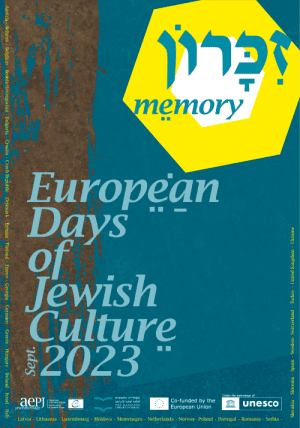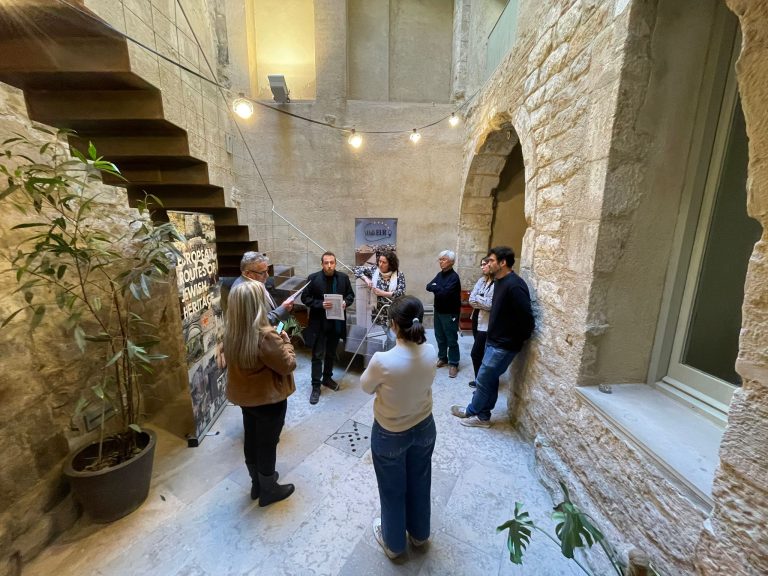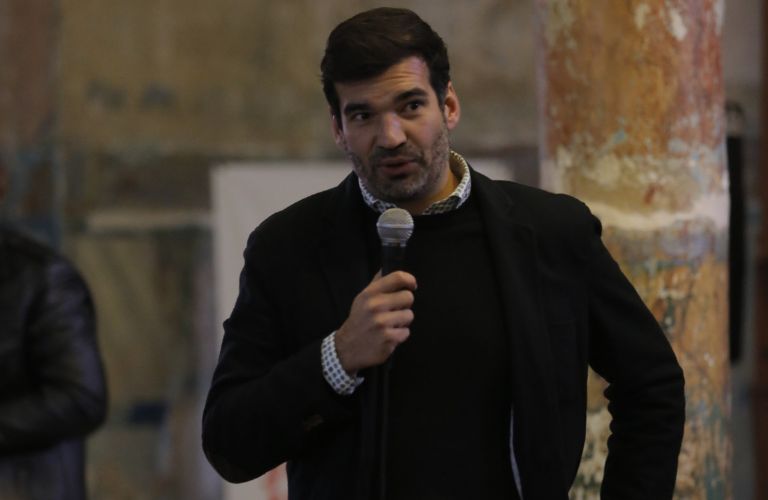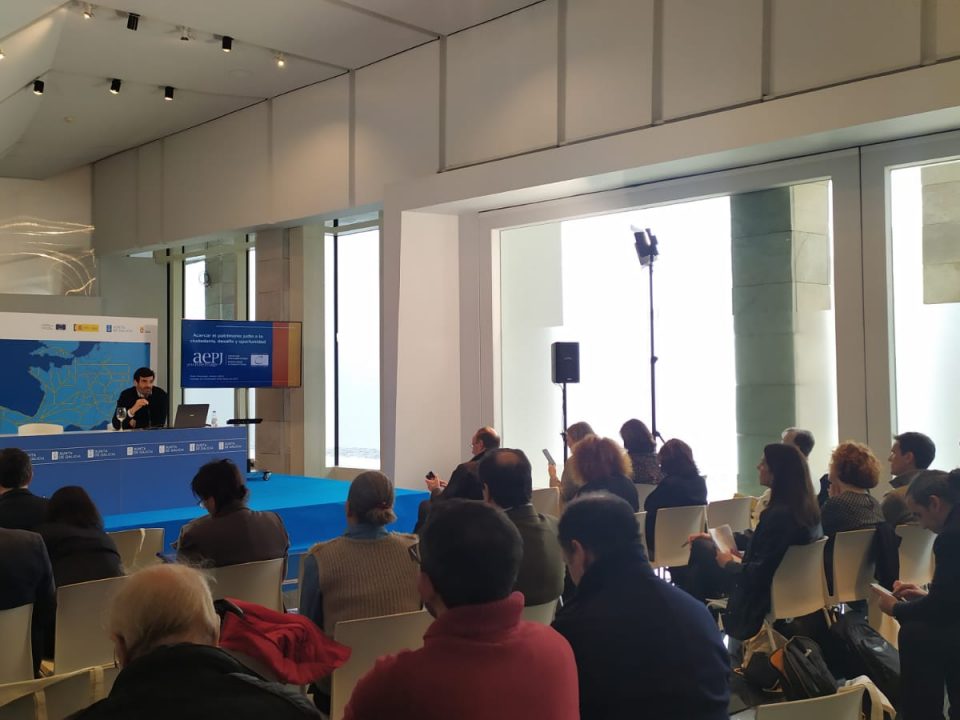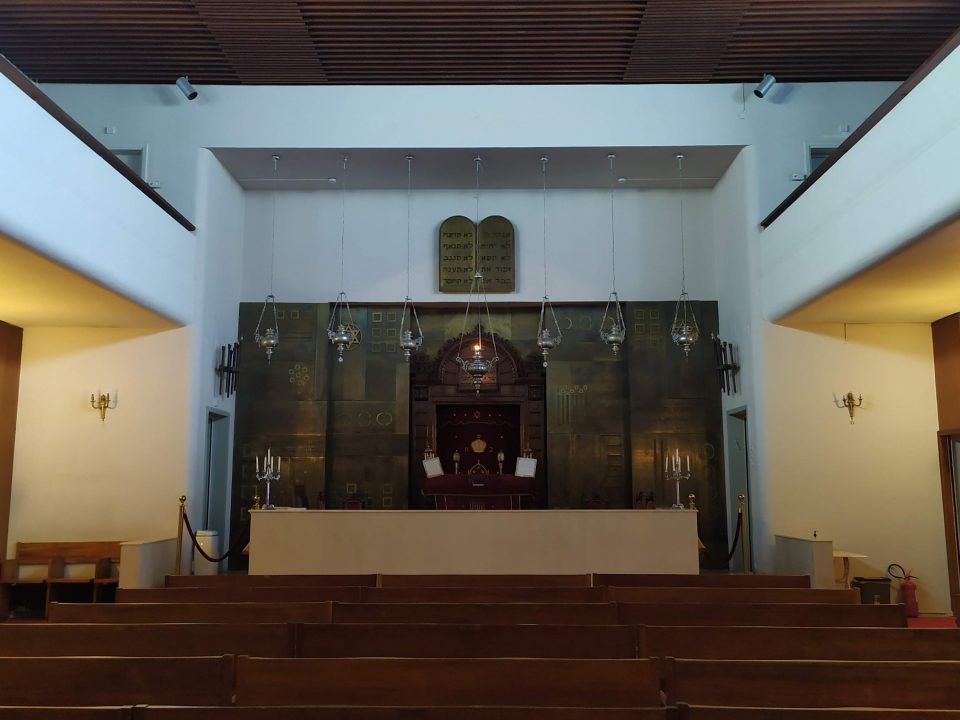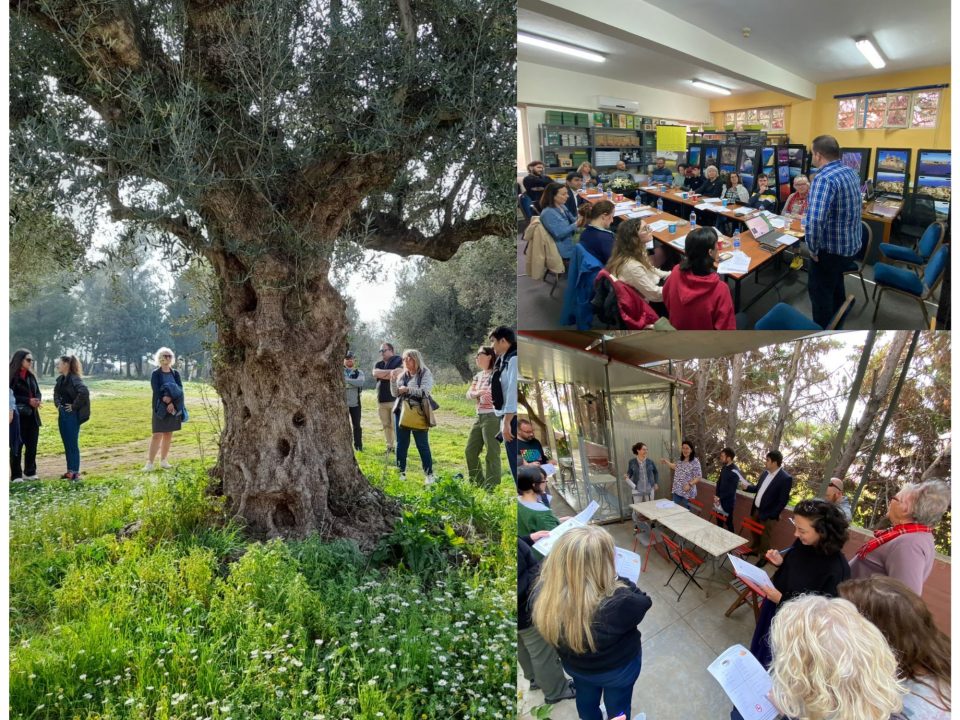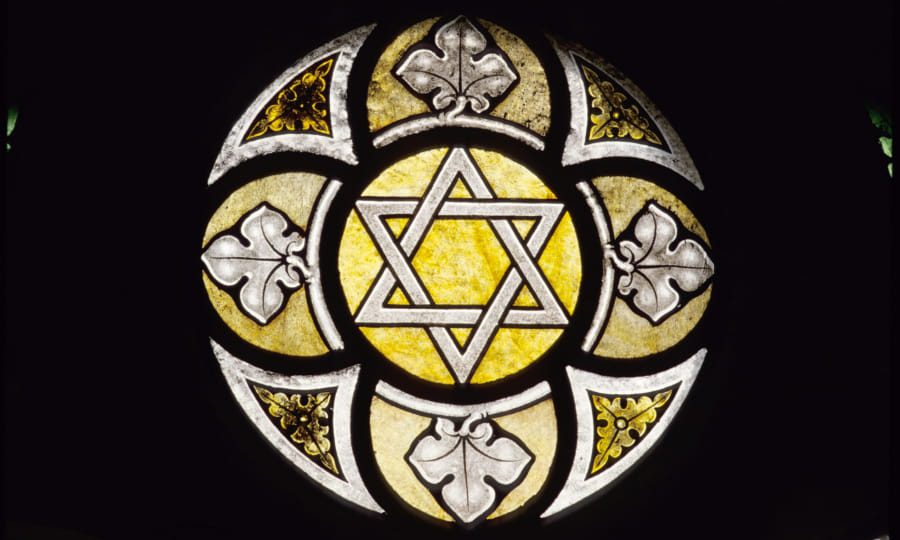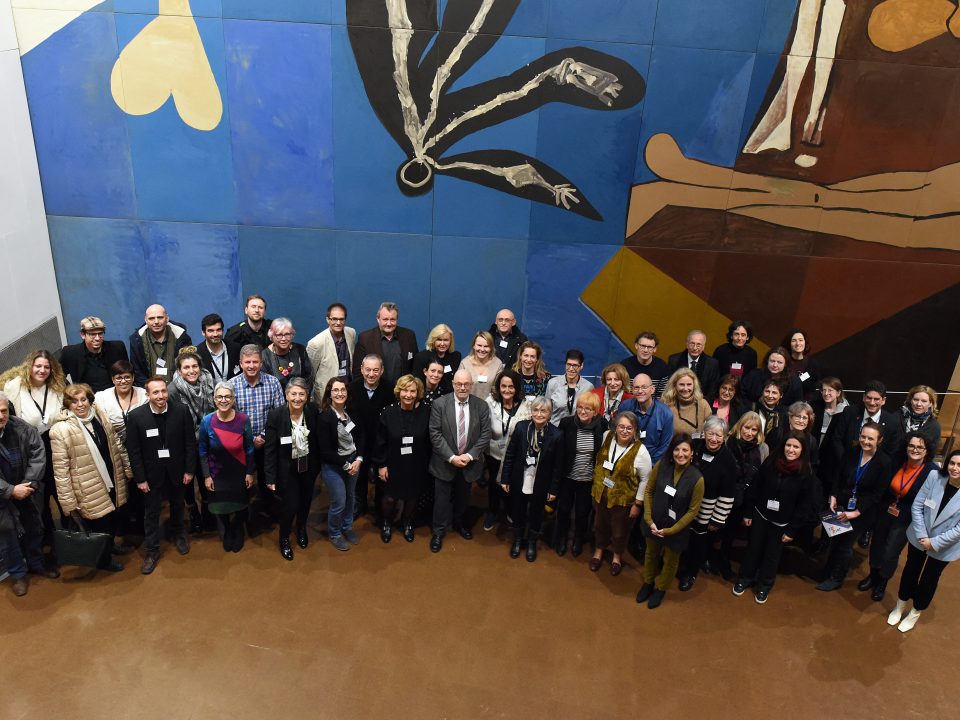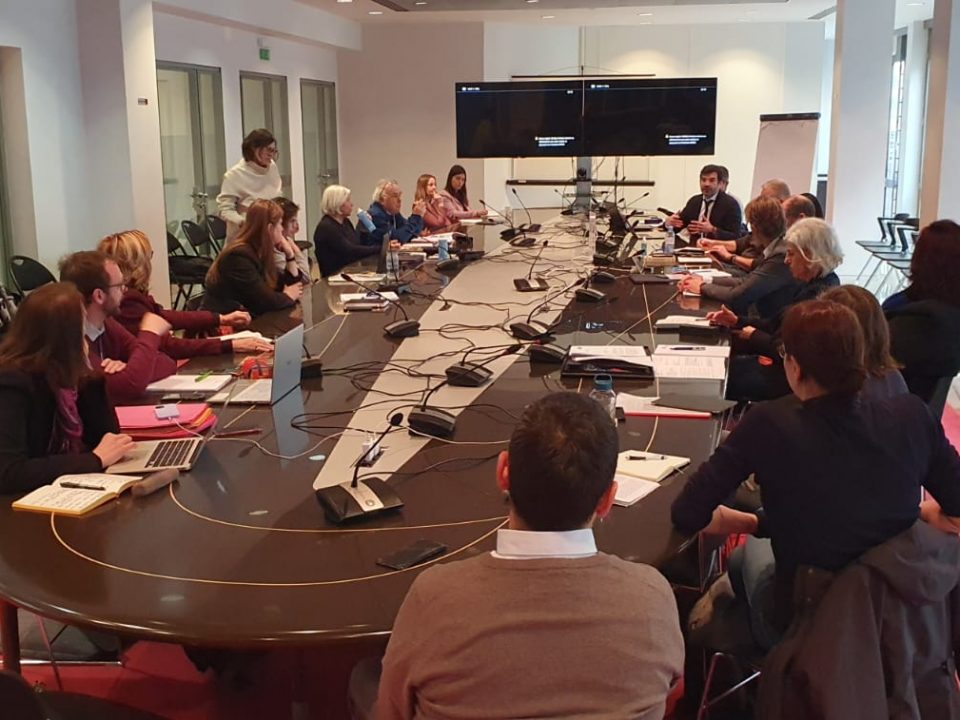- Filter by
- Categories
- Tags
- Authors
- Show all
- All
- AEPJ News
- Andalusia
- Austria
- Azerbaijan
- Balti
- Belarus
- Bendery
- Braunschweig
- Celle
- Chisinau
- EDJC old editions
- EDJC22
- EDJC23
- EDJC24
- EDJC25
- France
- Georgia
- Germany
- Girona
- Hannover
- Hildesheim
- Italy
- Izmir
- Lithuania
- Medieval Route
- Moldova
- National Route
- Orhei
- Padua
- Palaces, Villas and Country Houses
- Poland
- Regional Route
- Rhineland
- Rybnitsa
- Soroca
- Spain
- Thematic Route
- Tiraspol
- Turkey
- Ukraina
- Uncategorized
The European Days of Jewish Culture is proud to announce the winner of the second poster contest, Nikola Radic Lucati, Founder of the Center for Holocaust Research and Education in Belgrade, Serbia. The winning poster design features the Hebrew language as a clear and understandable symbol, avoiding the overt use of Jewish symbols such as the Magen David, menorah, and talit. The design includes the current Jewish calendar year, emphasizing the theme of Memory, and the use of color and rust brushstrokes are balanced, yet suggestive enough to support both cultural and memorial events.
Using a single poster for all EDJC events helps to create a homogeneous festival and facilitate communication between organizers and participants.
BARCELONA, SPAIN — On March 16, the WalkEUR project brought together experts and stakeholders from various organizations to discuss the challenges and opportunities of cooperation with Cultural Routes of the Council of Europe. The event was hosted at two historic venues in Barcelona: the Centre Cívic Pati Llimona, ceded by the City Council of Barcelona, and Casa Adret, the headquarters of the AEPJ and one of the oldest habitable houses in the city.
The event began with institutional speeches by Assumpció Hosta, AEPJ General Secretary, Xavier Marcé, Councillor for Tourism and Creative Industries of the city of Barcelona, and Miguel Ángel Martín Ramos, President of the Network of Routes of Charles V.
The project introductions were followed by a lively debate with experts on the importance of the Cultural Routes in promoting European cultural heritage.
AEPJ Director Victor Sorenssen exchanged at length this week with the Combat Antisemitism Movement (CAM) regarding the role of the AEPJ.
The Combat Antisemitism Movement transcribed the interview as follows:
What is the mission of the European Association for the Preservation and Promotion of Jewish Culture and Heritage (AEPJ)?
The European Association for the Preservation and Promotion of Jewish Culture and Heritage (AEPJ), an NGO created in 2004, is a network of European institutions — including public bodies, private foundations, federations of Jewish communities, and NGOs — that serves as a platform to develop cultural initiatives and educational programs to European Jewish sites. The AEPJ network acts as a channel for intercultural dialogue and promoting better knowledge and understanding of European history, creating awareness of cultural diversity, and strengthening European citizens’ cultural identity.
SANTIAGO DE COMPOSTELA, SPAIN — Organised by the Ministry of Culture of the Government of Spain, in collaboration with the Xunta de Galicia and the Concello de Catoira, in the City of Culture of Santiago de Compostela, this second meeting of Cultural Routes certified by the Council of Europe aimed at promoting greater knowledge between the professional coordinators of the certified routes with presence in the Spanish country.
Victor Sorenssen, director of the AEPJ, presented the paper Bringing Jewish heritage closer to citizens, challenge and opportunity, in the framework of which he dealt with the challenges that the European Routes of Jewish Heritage promotes the awareness of citizens in Europe to face anti-Semitism, recognising that the visibility of cultural expressions and Jewish legacy are a tool to face contemporary challenges of cultural diversity, racism and xenophobia, among others.
The AEPJ is proud to welcome the Jewish Community of Athens to the European Routes of Jewish Heritage!
Once the incorporation of certain new members into the AEPJ has been made official, we start to deploy those projects under the umbrella of the new members of the network. In the case of Greece, the project manager of the European Routes of Jewish Heritage, Marc Francesch Camps, met the new partners of JCA after attending the Youth4Culture project meeting in the city of Kalamata.
The meeting focused on issues related to the structure for the development of the project, the heritage elements that have been identified so far, and the agents that are operating from different experiences in research, conservation, dissemination and education in Jewish culture and heritage in Athens and the surrounding area.
The AEPJ participated this week in the training meeting for cultural agents developed in the framework of the Youth4Culture project, in Kalamata, Greece, a cooperation project between the European Route of Ceramics, the European Route of Emperor Charles V, the Routes of The Olive Tree and the European Routes of Jewish Heritage. The Youth4Culture project’s goals are to improve youth working methods to promote youth civic participation and the revalorization of European cultural heritage, to upgrade professional skills of youth workers who support youth entrepreneurship in the cultural field, to explore best practices to adapt in the different European contexts regarding civic engagement, cultural promotion and youth, and, therefore, to improve the efficiency and impact of the European Cultural Routes.
The association “Routes du Judaïsme Rhénan” and Alsace Destination Tourisme are organizing a free online training program: Le patrimoine juif d’Alsace, which has been developed with the support of the French Ministry of Culture. The topics covered include history, heritage and Jewish culture in Alsace, as well as two modules oriented towards the codes of cultural mediation to optimize the reception of visitors to the sites.
This exceptional training takes place through a series of four webinars hosted via Zoom on March 8, 9, 15 and 16. Registration is required and accessible online. All sessions will be hosted in French.
The training is intended for professionals in the touristic, heritage, and cultural sectors who want to obtain more references on Judaism and Jewish heritage in particular, as well as people linked to cultural institutions who have the will to develop initiatives of greater impact.
PARIS, FRANCE – The EDJC Organisers and Coordinators Meeting 2023 took place from February 22 to February 23, with the majority of its sessions and workshops occurring at the Memorial de la Shoah, and a final session and closing ceremony concluding the meeting at UNESCO headquarters in Paris. The bi-annual meeting for organisers and coordinators of European Days of Jewish Culture activities occurs in an extraordinary context and under the umbrella of an exceptional programme: the Citizens, Equality, Rights and Values programme of the European Union.
Organisers and coordinators of the European Days of Jewish Culture had the opportunity to spend two full days together in the city of Paris with the aim of training and reflecting upon how to work with the 2023 edition’s theme of memory.
PARIS, FRANCE – A meeting of managers of cultural routes certified by the Council of Europe, coordinated by the Cultural Routes Task Force, was held on February 21 at the French Ministry of Culture.
The purpose of the meeting was to work on the three themes that will be central to the next Training Academy of Cultural Routes, which will be held in Dordogne, France, in May 2023. These themes include cooperation between routes, visibility of the Cultural Routes of the Council of Europe programme, and sustainability.
Victor Sorenssen, AEPJ Director, participated, representing the European Route of Jewish Heritage. Victor is in fact the coordinator of the working group dedicated to cooperation, so he presented the results of the different preparatory meetings of this working group.

